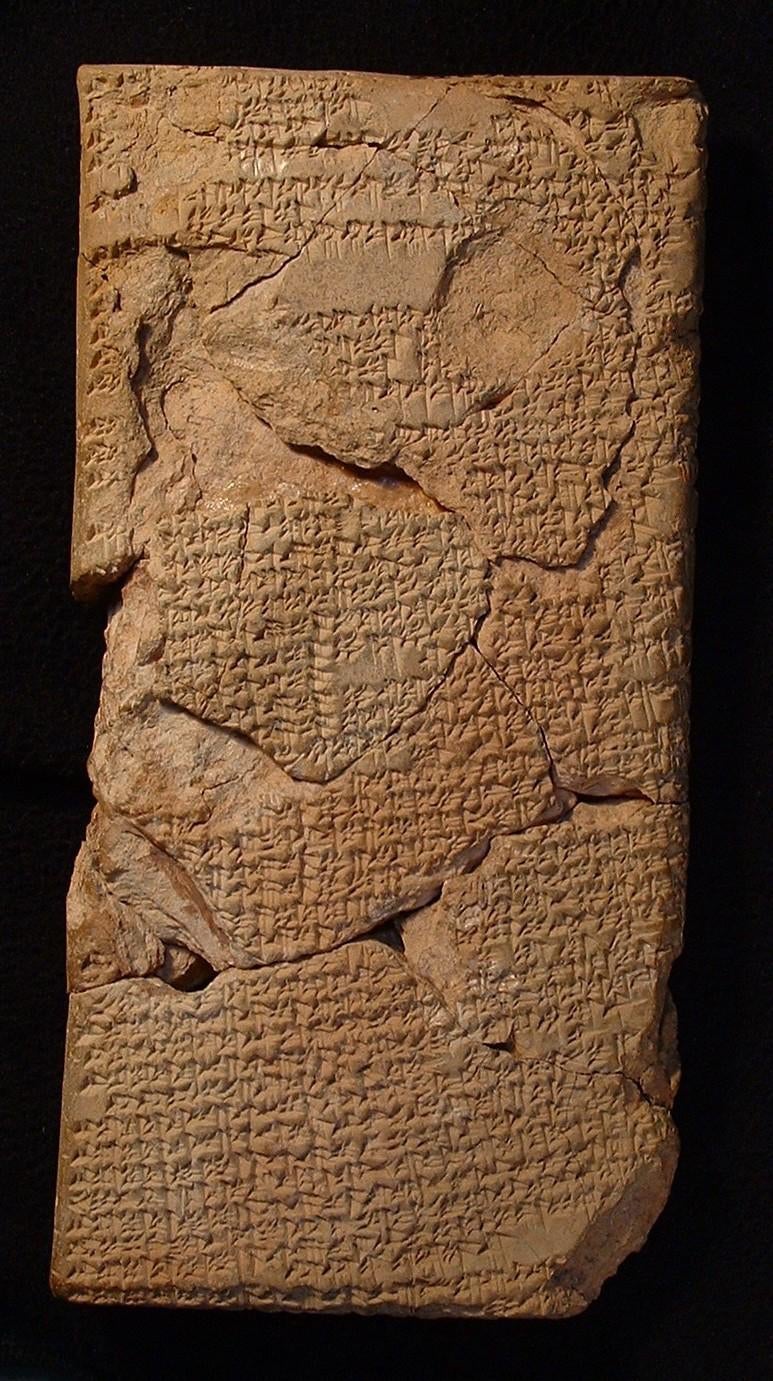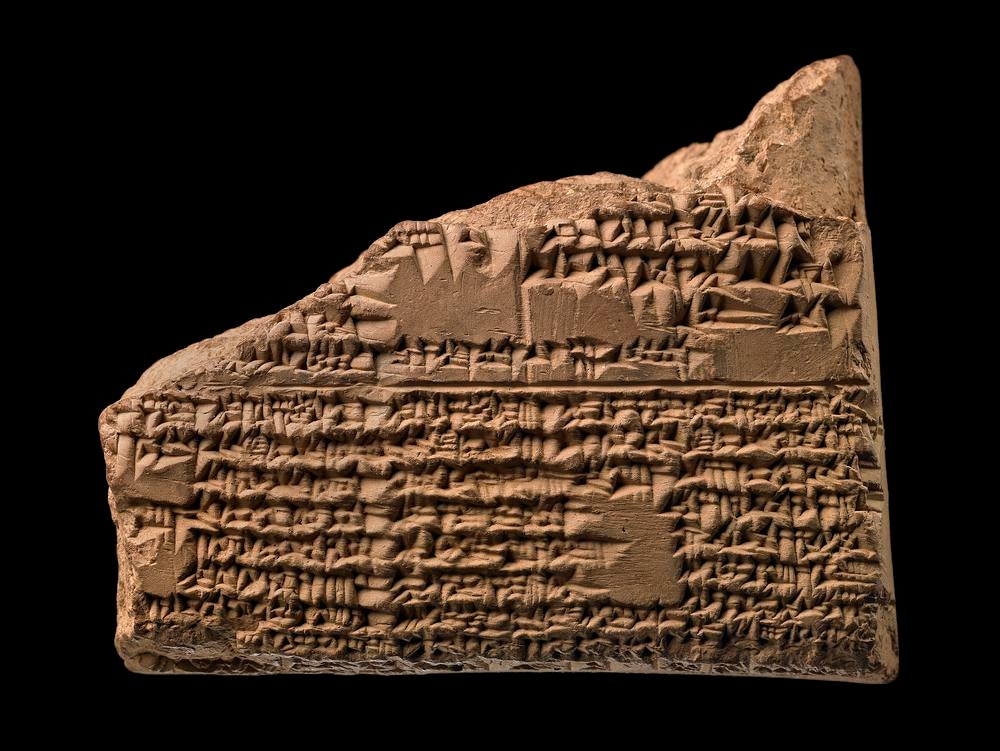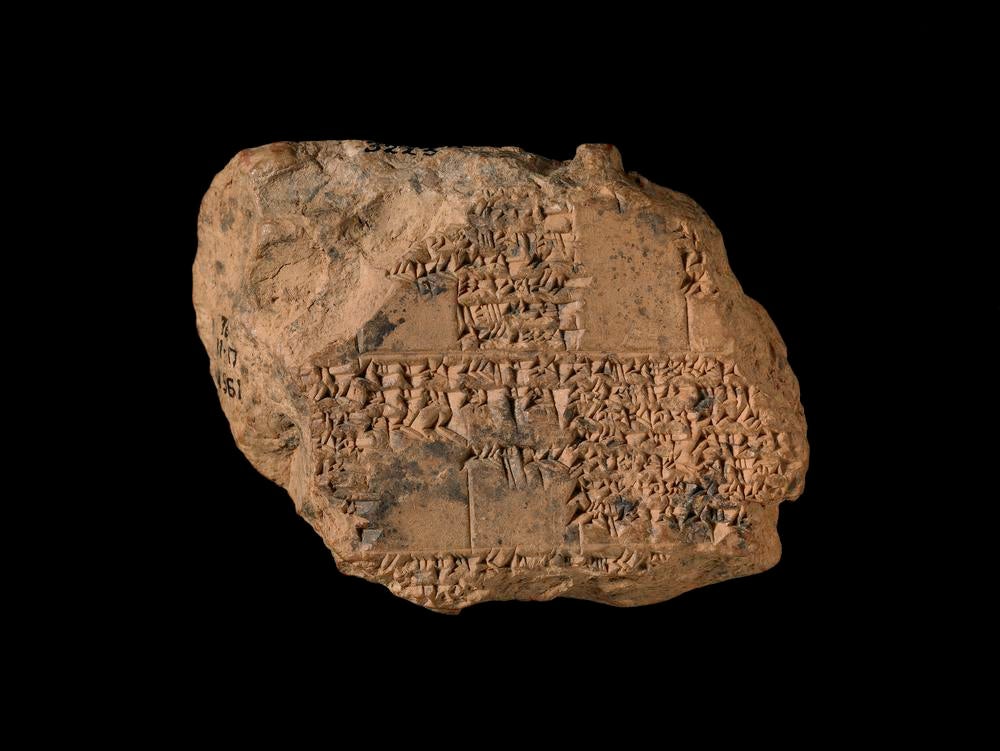Mystery behind 4,000-year-old Babylonian tablets predicting doom solved
One ominous prediction says lunar eclipse in morning means ‘end of a dynasty’
Archaeologists, with help from artificial intelligence, have finally decoded 4,000-year-old writing on ancient Babylonian cuneiform tablets predicting doom that have remained untranslated for over a century.
The newly deciphered text, published in the Journal of Cuneiform Studies, reveals that ancient Babylonians believed lunar eclipses were not just celestial events but dire omens predicting death and destruction.
The text is the oldest archaeological record of lunar eclipse omens and shows how ancient astrologers made predictions about disasters threatening the Mesopotamian civilisation by analysing celestial phenomena.
One of the tablets notes that “an eclipse in the morning watch” means “the end of a dynasty.”
“If an eclipse becomes obscured from its centre all at once and clear all at once: a king will die, destruction of Elam,” one ominous prediction by an astrologer reads.
“An eclipse in the evening watch signifies pestilence”, reads another. “If an eclipse is the wrong way around, nothing will be spared, the deluge will occur everywhere.”
It’s unclear what exactly the astrologer meant by “wrong way around” eclipse, but researchers suspect this refers to a scenario in which the moon’s disk is said to be “facing the opposite direction from that expected”.

The Mesopotamian civilisation emerged in the land between the Tigris and Euphrates rivers in modern-day Iraq, northeast Syria and southeast Turkey.
It saw crucial developments in human civilisation, expanding from agricultural settlements into large cities by taking advantage of its location between two rivers.
In this land, around three and four thousand years ago, people began recording connections they saw in their world which they believed would help them understand what might come in the future.
This ranged from making medical predictions based on changes to a person’s blood vessels and eyes to more esoteric connections that a king would die following an eclipse.
The latest research deciphered four tablets in the British Museum’s collection of cuneiform tablets from the civilisation acquired over a century ago.
The tablets are from the prosperous ancient Babylonian city of Sippar – part of modern-day Iraq – from about 1200 BC.
They represent the oldest known examples of lunar eclipse omens and provide fresh insights into celestial reverence among the people of southern Mesopotamia in the early second millennium BC.

“Babylonian astrology was an academic branch of divination founded on the belief that events in the sky were coded signs placed there by the gods as warnings about the future prospects of those on Earth,” archaeologists said.
“Astrological observation was part of an elaborate method of protecting the king and regulating his behaviour in conformity with the wishes of the gods.”

The tablets also mention some rituals involving the use of animal intestines to double-check the bad omens and determine “whether the king is in real danger”.
“First-millennium texts show that if, after such enquiry, the king’s advisers felt the threat still to be present, action could be taken to annul it, by identifying the forces of evil that lay behind it and countering them with apotropaic rituals,” researchers said.
Subscribe to Independent Premium to bookmark this article
Want to bookmark your favourite articles and stories to read or reference later? Start your Independent Premium subscription today.


Join our commenting forum
Join thought-provoking conversations, follow other Independent readers and see their replies
Comments